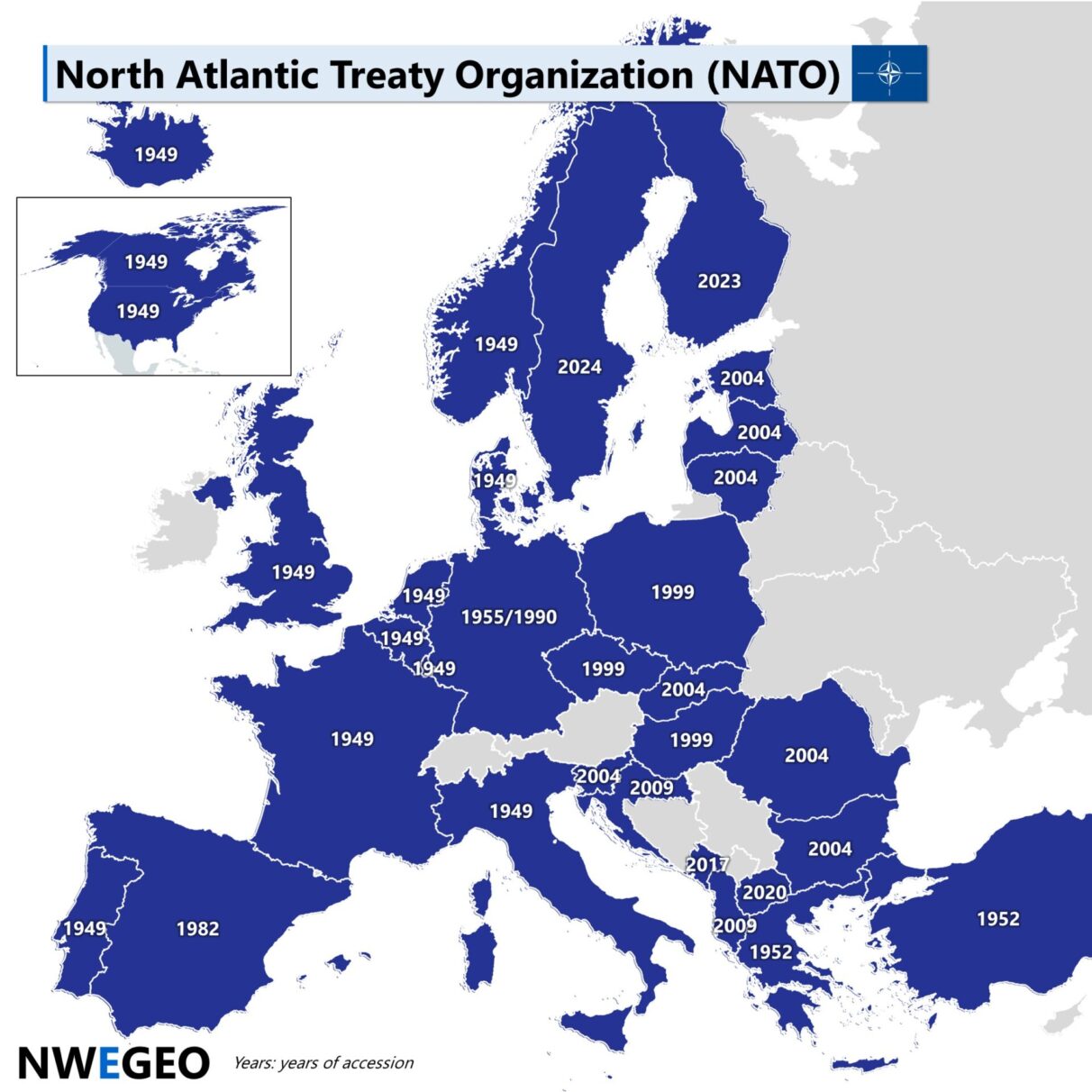Trump’s anti-NATO stance could have serious consequences: profs
President-elect pressures allies to increase defence spending or risk less U.S. support

caption
President elect Donald Trump pictured with NATO secretary general Jens Stoltenberg. A U.S. withdrawal from NATO could result in serious security reforms for the organization.With anti-NATO sentiment brewing ahead of Donald Trump’s second presidency, political observers say the rhetoric is part bluster, but also a potentially serious threat.
Ruben Zaiotti, director of Dalhousie’s Jean Monet European Union Centre of Excellence, suggests Trump’s anti-NATO rhetoric is likely a tactic. However, a U.S. departure would “be a serious blow to the organization and there would be talks about whether the organization would be viable . . . without the United States,” he said.
“A world without NATO or a very weakened NATO would send signals to other countries that are not members . . . [that] may have . . . ideas about being more proactive or aggressive militarily or politically,” he added.
Without the U.S. as a NATO ally, the level of security Europe has enjoyed for 75 years would not entirely be guaranteed, said Zaiotti.
The U.S. could also suffer a significant blow in leaving NATO, he said.
Since the Second World War, Zaiotti said, “the focus of the U.S. was . . . to organize or arrange international relations in a way that [they] could control them.”
But without a spot in NATO, this influence may wane, he said.
Trump has repeatedly turned heads with his comments and criticisms of The North Atlantic Treaty Organization (NATO), particularly about many members’ reluctance to pay NATO’s recommended two per cent target of national gross domestic product for defence spending.
“You didn’t pay? You’re delinquent? No, I would not protect you. In fact, I would encourage [Russia] to do whatever the hell they want. You gotta pay,” Trump said at a North Carolina rally in February 2024.
The North Atlantic Treaty Organization (NATO) is an international organization tasked with maintaining peace, order and security in the Euro-Atlantic region.
The organization was originally sealed into formation in 1949 in Washington, D.C., when its founding member states, Belgium, Canada, Denmark, France, Iceland, Italy, Luxembourg, the Netherlands, Norway, Portugal, the United Kingdom and the United States each sanctioned their membership commitments in their national legislatures.
NATO currently has 32 member states, and its largest financial contributors are the United States, the United Kingdom and Germany.

caption
NATO member states as of November 2024Trump is not alone in his criticisms of NATO.
“NATO is not an alliance; it’s a defence arrangement for Europe, paid for and underwritten by the United States,” wrote Pete Hegseth, Trump’s pick for defense secretary, in his 2020 book American Crusade.
The United States is currently NATO’s largest economic contributor and by far its most militarily capable member.
Marc Doucet, a political science professor at Saint Mary’s University, says these consequences depend on how the U.S. chooses to part ways with NATO.
Doucet said, for example, that if the U.S.’s departure were structured in a way to dismantle NATO as a whole, “. . . one could envision a scenario where a considerable amount of pressure would come from the Trump administration on the Canadian government to also leave.”
Canada is not Doucet’s only concern.
He also said “. . . it would be very difficult for the remaining members of NATO to see [itself] as a strong defence alliance.”
A potential departure could also “open up greater opportunities for Russia to extend its influence and continue to mount an aggressive foreign policy based on potential military aggression,” he said.
At present, the formal withdrawal process from NATO is simple.
The interested party must inform the U.S. government of their intention to leave. After one year of providing this notice the ally is free to leave.
Halifax is home to Canada’s largest naval base, and also hosts NATO DIANA — a program tasked with defence technology innovation, and frequently deploys frigates on NATO missions. The city would likely feel the impact of any changes to the organization.
About the author

Alex Walsh
Alex Walsh is a Journalism student at King's College. He holds a BA degree in English and Political Science from Dalhousie University.
